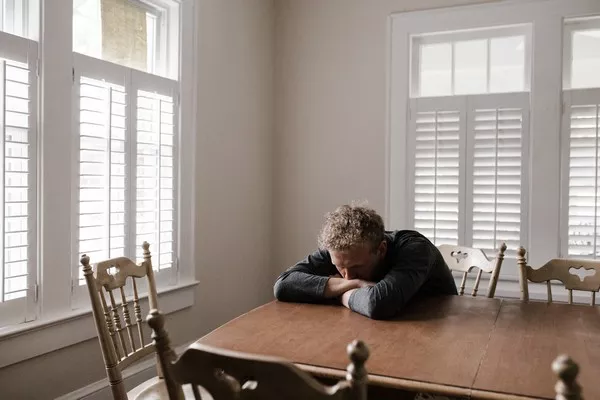Aging is a natural part of life, yet many people fear it. The idea of getting older is often associated with decline, illness, and loss of vitality. But what if aging didn’t have to mean growing weaker or sicker? What if it could be a period of growth, strength, and continued joy? That’s where the concept of healthy aging comes in—a way of living that helps you not just add years to your life but life to your years.
Healthy aging isn’t about avoiding age altogether. It’s about supporting the body and mind so that they function well for as long as possible. It means staying active, eating well, protecting your brain, and keeping your social life rich and meaningful. It’s not just for people over 60 either—how you age is determined by what you do decades earlier. The choices you make in your 30s, 40s, and 50s are building the foundation for the kind of life you’ll live later on.
The Body Changes—But You Have Control
As we grow older, our bodies go through many changes. Muscle mass decreases, metabolism slows down, and bones may become thinner. Skin loses elasticity, and joints may feel stiffer. These are normal changes, but how you respond to them makes all the difference. Healthy aging doesn’t mean stopping these processes—it means managing them wisely.
For example, physical activity can help slow the loss of muscle and bone strength. Strength training, walking, swimming, or yoga all help keep your body flexible and strong. Staying active also supports balance, which reduces the risk of falls. Likewise, eating nutrient-rich foods can help support the body’s changing needs. Getting enough calcium and vitamin D, for instance, becomes more important for protecting your bones.
Another key part of managing aging is staying on top of your health. Regular check-ups and screenings can help detect problems early. Blood pressure, cholesterol, blood sugar, and vision should all be monitored regularly. Early detection often means better treatment and a higher chance of recovery. Healthy aging is about being proactive, not passive.
The Power of Nutrition in Aging Well
Food is fuel, but as we age, it becomes so much more than that. It can be the difference between feeling tired and feeling energized, between staying independent and needing help. The aging body has different nutritional needs, and paying attention to them is one of the best ways to promote longevity and well-being.
Older adults often need fewer calories, but more nutrients. That means every bite should count. Whole foods like fruits, vegetables, lean proteins, whole grains, and healthy fats provide vitamins and minerals that protect the body from disease and support cell repair. Fiber helps with digestion, while antioxidants fight the oxidative stress that contributes to aging.
Hydration is another overlooked element. With age, the sense of thirst may decrease, but the need for water remains. Dehydration can lead to confusion, dizziness, and fatigue. Drinking enough water, herbal teas, or low-sugar beverages keeps the body running smoothly.
It’s also important to limit foods that harm rather than heal. Processed foods, excessive sugar, too much salt, and unhealthy fats can increase inflammation, damage blood vessels, and contribute to chronic illness. Choosing real, whole foods over packaged convenience items helps the body age more gracefully.
Staying Physically Active at Every Age
Exercise is one of the most effective tools for healthy aging. It supports nearly every system in the body, from the heart to the brain. It improves balance, flexibility, strength, and endurance—all of which become more important with age. It’s not about lifting heavy weights or running marathons, but about moving your body regularly and with purpose.
Aerobic activities like walking, dancing, biking, or swimming help keep the heart and lungs strong. Strength training with weights or resistance bands builds muscle and supports bone health. Flexibility exercises such as stretching or yoga maintain range of motion and reduce stiffness. Balance exercises, like standing on one leg or practicing tai chi, lower the risk of falls.
The key is to make movement a part of daily life. Gardening, cleaning, walking to the store, or playing with grandchildren all count. Even small amounts of activity add up over time. Staying physically active also improves mental health. It reduces anxiety, improves sleep, and boosts mood by releasing endorphins—the body’s natural feel-good chemicals.
Mental Health and Emotional Well-being
Healthy aging isn’t just about the body. The mind needs just as much attention. Aging can bring new stresses—retirement, loss of loved ones, or changes in routine—but it can also bring wisdom, freedom, and new opportunities. The goal is to nurture mental health as much as physical health.
Social connections are a powerful part of emotional well-being. Staying connected with friends, family, or community groups provides support, reduces loneliness, and keeps the brain engaged. Isolation is one of the biggest risk factors for depression and cognitive decline in older adults. Making time for social activities, volunteering, or joining clubs helps keep the spirit alive.
Lifelong learning is another way to support a healthy mind. Reading, taking classes, learning new skills, or picking up a hobby stimulates the brain and can even help prevent dementia. Mental stimulation challenges the brain to grow new connections and stay sharp.
Managing stress is equally important. Chronic stress harms the immune system, increases inflammation, and worsens many age-related conditions. Deep breathing, meditation, nature walks, and creative activities like painting or music can calm the mind and reduce stress hormones. Laughter, gratitude, and positive thinking also support emotional balance.
Sleep: The Unsung Hero of Longevity
Sleep often becomes more difficult with age, but it is essential for healthy aging. It’s during sleep that the body repairs itself, the brain processes memories, and the immune system recharges. Poor sleep is linked to many health problems, including heart disease, depression, obesity, and even Alzheimer’s disease.
Changes in sleep patterns are normal with age. People may go to bed earlier, wake up more often during the night, or feel sleepy during the day. However, consistently poor sleep is not normal and should be addressed. Creating a regular sleep routine helps. Going to bed and waking up at the same time every day supports the body’s internal clock.
Avoiding screens before bed, limiting caffeine, and keeping the bedroom cool and dark can all improve sleep quality. Relaxing activities like reading or listening to soft music can also help signal the body that it’s time to wind down. If sleep problems persist, it’s important to talk to a doctor. Conditions like sleep apnea or restless leg syndrome may need medical attention.
Cognitive Health and Preventing Memory Loss
Memory loss is one of the most feared aspects of aging. While some forgetfulness is normal, significant cognitive decline is not. Fortunately, there are ways to keep the brain healthy and protect memory. A big part of that comes down to lifestyle choices made every day.
The brain thrives on oxygen and nutrients, which means what’s good for the heart is good for the brain. Regular exercise, a heart-healthy diet, and managing blood pressure and cholesterol all support brain health. So does staying mentally active. Reading, puzzles, learning a language, or playing strategy games all engage the mind and build new connections.
Social interaction and emotional health also play a role. People who are socially active tend to have better cognitive function. Managing depression, anxiety, and chronic stress can also help protect memory and focus. Sleep, again, is essential—without deep sleep, the brain can’t consolidate memories properly.
Preventing memory loss is not just about avoiding disease—it’s about creating a lifestyle where the brain is constantly supported, nourished, and challenged.
Preventive Health Care and Regular Checkups
Aging well means staying ahead of health problems. Preventive care is one of the best investments you can make in your future. Regular checkups, screenings, and vaccinations help catch problems early and keep chronic conditions under control.
As you age, it’s important to monitor key health indicators. These include blood pressure, cholesterol levels, blood sugar, bone density, and vision and hearing tests. Cancer screenings such as mammograms, colonoscopies, and prostate exams are also essential. Early detection greatly improves treatment outcomes.
Vaccinations shouldn’t be overlooked either. Flu shots, shingles vaccines, and pneumonia vaccines become more important with age. They help protect a more vulnerable immune system and reduce the risk of serious illness.
Having a good relationship with a primary care doctor makes it easier to track your health and stay on top of changes. It’s also helpful to keep a list of medications, supplements, and medical history so that health care decisions can be made wisely and efficiently.
The Importance of Purpose and Joy
Living well isn’t just about staying alive—it’s about having a reason to get out of bed each morning. Purpose and joy are essential elements of healthy aging. They give life meaning, fuel resilience, and improve both mental and physical health.
Purpose can come from many sources. It might be caring for grandchildren, volunteering, exploring creative passions, or simply continuing to grow as a person. People who feel they have purpose tend to live longer, experience less stress, and recover from illness more quickly.
Joy comes in everyday moments—a walk in the sun, a meaningful conversation, a delicious meal, a favorite song. Practicing gratitude helps shift focus from what’s been lost to what’s still possible. It’s a way to reconnect with life’s beauty at any age.
Spirituality, whether through religion, meditation, or connection with nature, also supports a sense of peace and belonging. Having a belief system or sense of wonder can help people navigate the challenges of aging with grace and hope.
Embracing Aging With Confidence
The way society views aging often influences how individuals experience it. Negative stereotypes can lead people to believe they are less valuable or capable as they get older. But aging is not a decline—it’s a transformation. It’s a time to reflect, grow, and embrace the fullness of life.
Every stage of life offers something new. With age comes wisdom, patience, and a broader perspective. Challenges may arise, but so does the opportunity to face them with the tools gained through experience. Staying curious, connected, and open to change helps make aging a positive, enriching journey.
Healthy aging is not about perfection. It’s about making choices that support your best self, one step at a time. It’s about listening to your body, caring for your mind, and honoring your spirit. No matter your age, it’s never too late—or too early—to start.
A Life Well-Lived Starts Today
You don’t have to wait until retirement to think about aging. The habits you build today shape the life you’ll enjoy tomorrow. Whether you’re in your 30s or your 70s, you have the power to influence your future health. Every healthy meal, every walk, every kind word to yourself matters.
Healthy aging is not a destination—it’s a lifelong journey. It’s a process of tuning into what your body needs, nurturing your passions, and staying connected to what truly matters. There will be ups and downs, but with awareness and intention, you can age with strength, grace, and vitality.
Related Topics































